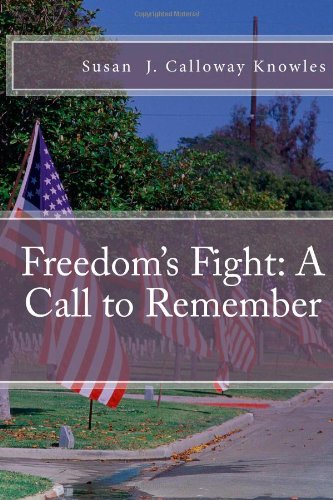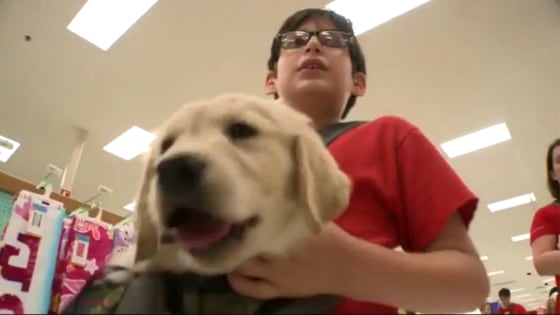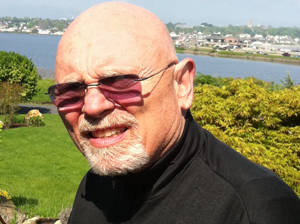It has been a tough week for President Obama at the Supreme Court! The Obama administration lost 4 out of 5 decisions and 2 were rare 9 to 0 decisions, and today ObamaCare’s loss to Hobby Lobby was added to tally. However, today’s decision was very narrow and some pro-life and religious groups question whether it was a win in the long run in their battles. You be the judge…
By Marion Algier – Ask Marion
Attorneys Who Defended Hobby Lobby Celebrating
American Thinker: Hobby Lobby 1, Obamacare 0
The Supreme Court upheld the religious freedom rights of Hobby Lobby, the closely-held corporation owned by believing Christians who objected to being required to supply the abortion pill to their employees.
Steve Ertelt of Life News reports:
…the U.S. Supreme Court today issued a favorable ruling in Sebelius v. Hobby Lobby Stores, Inc., a landmark case addressing the Constitutionally guaranteed rights of business owners to operate their family companies without violating their deeply held religious convictions.
Writing for the 5-4 majority, Justice Samuel Alito handed down the decision for the high court, saying, “The Supreme Court holds government can’t require closely held corporations with religious owners to provide contraception coverage.”
“HHS’s contraception mandate substantially burdens the exercise of religion,” the decision reads, adding that the “decision concerns only the contraceptive mandate and should not be understood to mean that all insurance mandates.”
Justice Anthony Kennedy wrote a concurring opinion saying that government itself could provide the coverage for contraception and the abortion-causing drugs if a company declines to do so.
The Hobby Lobby decision only applies to companies. Non-profit groups like Priests for Life and Little Sisters are still waiting for a ruling about their right to opt out of the mandate.
Note that this ruling only applies to closely-held corporations, but does not rule out applying the same religious freedom reasoning to publicly-held firms and nonprofits.
Ed Lasky points out:
The fact that both these decisions [Hobby Lobby and the forced union dues case] were 5-4 points out the danger of Obama picking the next SC Justice with Reid in control of the Senate. If the opportunity present itself, he will abolish the filibuster for SC nominees, too.
Memo.com: The Supreme Court Gets It Right
Finally, the U.S. Supreme Court has stepped up to defend Americans' most basic freedoms from the full-frontal assault by the rampaging band of leftists running America. In a 5-4 decision, the Court ruled in favor of Hobby Lobby, a Christian business that objected on religious ground to Obamacare's mandate that they must cover certain contraceptives.
Hobby Lobby is among about 50 businesses that have sued over covering contraceptives. Some, like Hobby Lobby, are willing to cover most methods of contraception, as long as they can exclude abortifacients.
Justice Samuel Alito said the decision is limited to contraceptives. "Our decision should not be understood to hold that an insurance-coverage mandate must necessarily fall if it conflicts with an employer's religious beliefs," he said. He suggested two ways the administration could deal with the birth control issue. The government could simply pay for pregnancy prevention, he said. Or it could provide the same kind of accommodation it has made available to religious-oriented, not-for-profit corporations.
Justice Anthony Kennedy, who was part of the majority, also wrote separately to say the administration can solve its problem easily. "The accommodation works by requiring insurance companies to cover, without cost sharing, contraception coverage for female employees who wish it," Kennedy said. He said that arrangement "does not impinge on the plaintiffs' religious beliefs." Everyone's rights respected and problem solved. Easy peasy.
Of course, Obamacare was never about health care or health insurance. It was only and always about government power and control. Over you. That's what the contraceptive mandate was all about: social engineering, abortion made even easier to get, and with the government holding the strings of control over all of it.
Thank goodness the Supremes ruled on the side of religious liberty. It's about time. But that 5-4 split is too close for comfort. As we head into 2016, don't forget that the Supreme Court---like all of our courts---hangs by a thread, and with it, our most basic freedoms.
Huffington Post: If Hobby Lobby Wins, Pro-life Christians Lose
We now know with certainty that the Supreme Court will announce its Hobby Lobby decision on Monday. This weekend, the craft and home décor store, along with numerous evangelical institutions that have filed briefs in its support -including my former employer the National Association of Evangelicals--are hoping and praying God will favor them with a whole new expansion of religious freedom and the protection of human life. I'm praying for the opposite.
Along with nearly 50 other for-profit corporations, Hobby Lobby is demanding the same religious freedoms and protections that each of us has. Hobby Lobby was not endowed by its Creator with certain unalienable rights. It does not have a soul. It cannot have faith. Yet its owners (and their lawyers) insist that it should not have to comply with the contraceptive coverage requirement in the Affordable Care Act on religious grounds. The Obama Administration reasonably granted an opt-out to houses of worship and other religious nonprofits. Hobby Lobby wants similar treatment.
Evangelical intervention on behalf of the multi-billion dollar corporation, which donates generously to their causes, is wrong for many reasons but here are two major ones: If you are pro-religious liberty and pro-life and family, you can't support allowing a for-profit corporation to use religion to deny contraceptive coverage.
First, supporters of Hobby Lobby think they are helping the Christian faith but are actually harming it. In fact, a ruling in favor of Hobby Lobby weakens religious freedom.
When anyone can use religion to claim an exemption on anything, religion loses meaning. Rather than a personal belief embedded in our souls, faith would become a set of arbitrary rules any corporation could choose from to skirt the law.
Is this what evangelicalism needs? I spent nearly three decades in governmental relations at the National Association of Evangelicals defending the free-exercise of religion and the right to life, among many other traditional values. Coming to the aid of for-profit corporations who want to ride on the backs of religion is not one of these honored principles.
Indeed, it is a kind of corporatism invading the body of Christ -- concern not for the "least of these" but the richest of those among us. Is this what Christ would do?
When corporations are allowed the same exemptions that have always been reserved just for churches--whether on health benefits, hiring, or land use--those special protections become less clear and more open for interpretation.
If a for-profit corporation is eligible for legal exemptions on grounds of religious freedom, it puts government in charge of deciding what is or isn't religion. You can just imagine the lawyers who will find work forever litigating these claims. I know, from experience, that their concern for what should be "legal" is not the same as what is "spiritual" or truly serves the interests of the Church.
What if a corporation owned by Jehovah Witnesses refuses to cover blood transfusions? If Christian corporations are allowed to use faith to refuse contraception coverage to women who work for them, what's to stop a Christian Scientist business from refusing to cover any health benefits?
Second, the supporters of Hobby Lobby think they are being "pro-life." They are wrong. A massive study conducted in 2012 showed that contraception coverage without a co-pay could dramatically reduce the abortion rate.
That study, conducted by the Washington University School of Medicine, of 10,000 women at-risk for unintended pregnancy found that when given their choice of birth control methods, counseled about their effectiveness, risks, and benefits, with all methods provided at no cost, about 75 percent of women in the study chose the most effective methods: IUDs or implants. Most importantly, as a result, annual abortion rates among study participants dropped up to 80 percent below the national abortion rate.
Well, you might ask, based upon some of the charges being made, aren't the contraceptive methods being funded through the Affordable Care Act, abortifacients? Not if you believe medical science.
In the words of Jeffrey F. Peipert, M.D., Ph.D., the Robert J. Terry Professor of Obstetrics & Gynecology at Washington University School of Medicine, "these contraceptive methods work by preventing pregnancy (fertilization) from occurring in the first place. For instance, the intrauterine device works primarily by preventing fertilization. Plan B (or the progestin-containing, morning-after pill), along with Ella (ulipristal acetate), delay the release of a woman's egg from her ovary. The egg does not get fertilized, which means the woman does not become pregnant."
In sum, Evangelicals supporting Hobby Lobby at the Supreme Court are not actually being pro-religious freedom or pro-life. If they win at the Supreme Court, these causes will be damaged in the long run

![justina-and-dad[1]](http://gulagbound.com/wp-content/uploads/2014/02/justina-and-dad1-300x300.jpg)

 Following the encounter, Ms. Wesolowski’s neighbors (who had temporary custody) and she, took Dylan to a pediatrician so that the red mark could be diagnosed. The pediatrician’s report, according to Wesolowski, indicates that the red mark was eczema. Wesolowski reportedly has the medical records to prove this fact.
Following the encounter, Ms. Wesolowski’s neighbors (who had temporary custody) and she, took Dylan to a pediatrician so that the red mark could be diagnosed. The pediatrician’s report, according to Wesolowski, indicates that the red mark was eczema. Wesolowski reportedly has the medical records to prove this fact. 



















 Alex Greene is the Investment Director of
Alex Greene is the Investment Director of 

